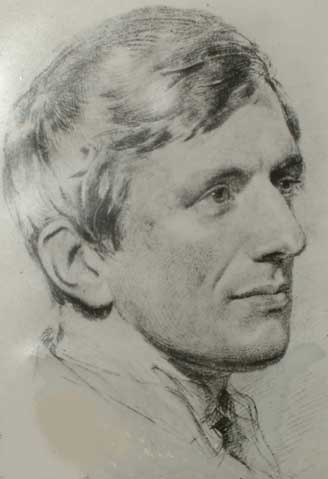10.10.2019

Click to enlarge image
On the occasion of his canonisation in Rome by Pope Francis, the National University is pleased to remember and celebrate John Henry Newman for his historical link with the University through his appointment as Rector of the Catholic University of Ireland, predecessor of UCD. We also remember him for his profound, visionary and enduring contribution to higher education among many other achievements.
In a recent NUI Education & Society lecture, Simon Marginson, Professor of International Higher Education, University of Oxford, argued: ‘Newman is obsolete. Yet Newman is ever-present. His invocations against vocational utility, and against research in the university, are no longer persuasive. But Newman did not set himself against knowledge as such. Newman’s pellucid vision of teaching and learning, expressed in prose never equalled, was of personal development immersed in diverse knowledge. He told us that knowledge and truth are not just means but ends’. (Simon Marginson, The Kantian University: Worldwide triumph and growing insecurity, Education & Society, Lecture No 1 (NUI, 2019)
Newman’s unequalled prose includes passages such as the following from The idea of a University, the title of the published series of nine lectures given by Newman in Dublin:
‘A University … taken in its bare idea … has this object and this mission; it contemplates
neither moral impression nor mechanical production; it professes to exercise the mind neither in art
nor in duty; its function is intellectual culture, here it may leave its scholars, and it has done its work
when it has done as much as this. it educates the intellect to reason well in all matters, to reach out
towards truth, and to grasp it’.
(The Idea of the University (1852), p. 152)
‘I am asked what is the end of University Education, and of the Liberal or Philosophical
Knowledge which I conceive it to impart: I answer, that what I have already said has been sufficient
to show that it has a very tangible, real, and sufficient end, though the end cannot be divided from that
knowledge itself. Knowledge is capable of being its own end. Such is the constitution of the human mind,
that any kind of knowledge, if it be really such, is its own reward’.
(The Idea of the University (1852), p. 128)
In 1851 Newman, a fellow of Oriel College, Oxford, who had given up his teaching post in Oxford on becoming a Catholic and being ordained a Catholic priest, was appointed first Rector of the Catholic University of Ireland. This institution was founded by the Catholic hierarchy in 1851. The Catholic University was formally opened in November 1854 and Newman remained as its rector until 1859. In the absence of any official state recognition, the degrees of the Catholic University were not seen as enhancing the prospects of an aspiring Catholic population and the institution failed to attract significant numbers of students. The exception was the Medical School in Cecilia Street, established in 1855. By the end of the century it was the largest medical school in Ireland.
The University Education (Ireland) Act, 1879 provided for the formation of a new University in Ireland, afterwards styled the Royal University of Ireland. The foundation of the Royal University provided an opportunity to improve the position of the Catholic University students. St Patrick's House (later Newman House, St Stephen's Green and now the home of the recently-opened Museum of the Literature of Ireland www.moli.ie) became University College, Dublin, initially under the direction of the Jesuits.
The Irish Universities Act, 1908 established two new Universities - the National University of Ireland and the Queen's University of Belfast. Under this Act, the National University became a federal University with its seat in Dublin and with three Constituent Colleges established by Charter: University College, Dublin; University College, Cork; and University College, Galway.
« Previous






















